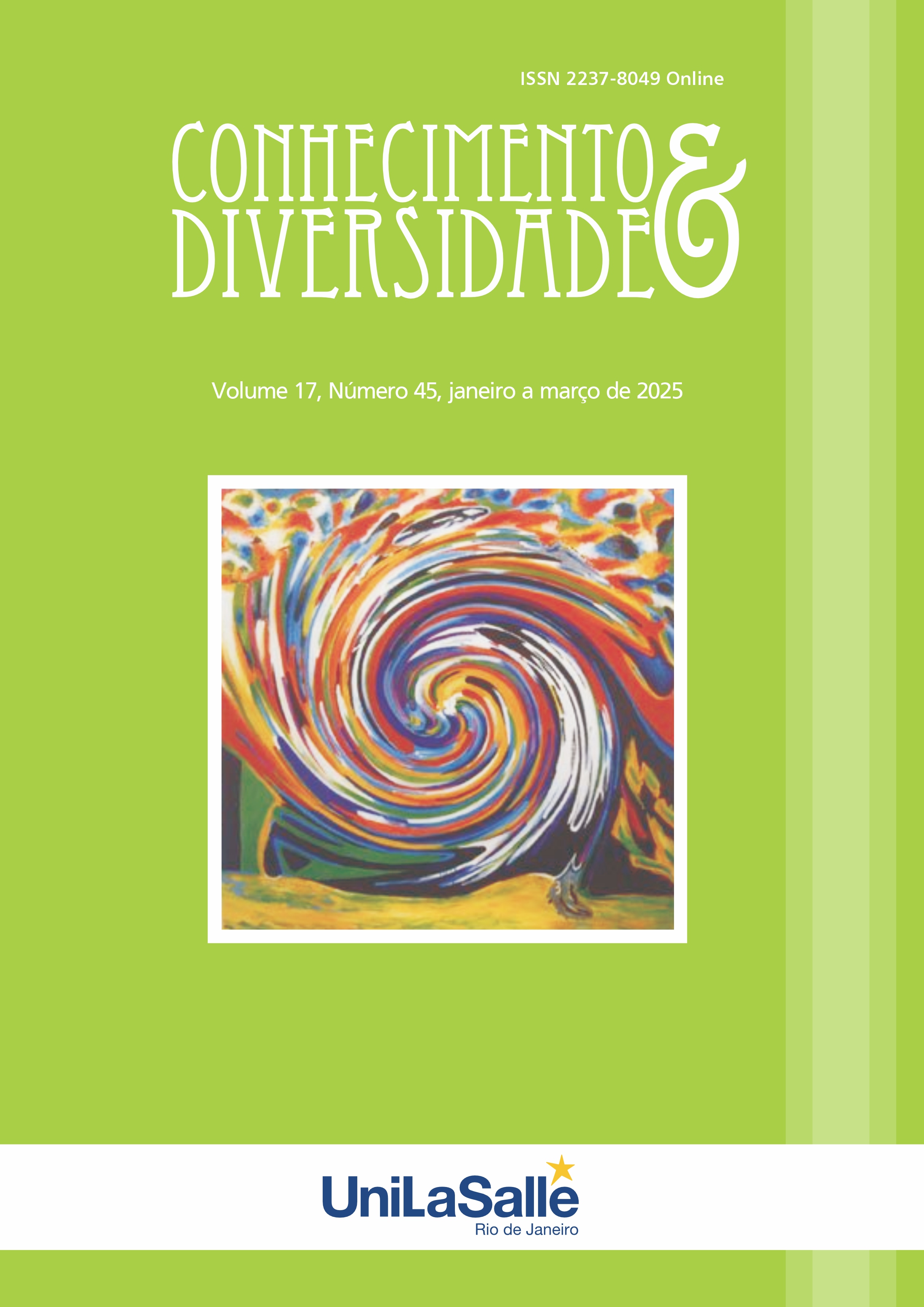POSTMODERN PEDAGOGY
REWRITING THE RULES OF LEARNING AND TEACHING
DOI:
https://doi.org/10.18316/rcd.v17i45.12450Palabras clave:
Postmodernism, Deconstruction in Education, Dialogic Pedagogy, Educational Equity, Digital Learning, Critical PedagogyResumen
Traditional education has long been built on modernist principles that emphasize objectivity, rationality, and hierarchical structures. However, postmodernist thought, particularly through the lens of Jacques Derrida’s deconstruction, challenges these foundational assumptions by revealing the inherent power dynamics, exclusions, and biases embedded within educational systems. This article critically examines how deconstruction can be applied to education to create more equitable, inclusive, and context-sensitive learning environments. By questioning dominant narratives, rethinking pedagogical approaches, decentralizing curricula, and integrating dialogic and digital methodologies, this paper argues for a transformation in education that moves beyond rigid, prescriptive frameworks. Through an exploration of philosophical perspectives and practical strategies, this study demonstrates how postmodern critiques can reshape education to be more adaptive, participatory, and socially just in the 21st century.
Citas
Akçay, K. (2024). Global citizenship for the students of higher education in the realization of sustainable development goals. Sustainability, 16(4), 1604.
Aronowitz, Stanley. (1998). The Knowledge Factory: Dismantling the Corporate University and Creating True Higher Learning. Boston: Beacon Press.
Battiste, Marie. (2000). Reclaiming Indigenous Voice and Vision. Vancouver: UBC Press.
Blake, Nigel, Paul Smeyers, Richard Smith, and Paul Standish. (1998). Thinking Again: Education After Postmodernism. Westport, CT: Bergin & Garvey.
Burbules, Nicholas C. (1995). Postmodern Doubt and Philosophy of Education. In Philosophy of Education Yearbook.
Carr, David. (2003). Making Sense of Education: An Introduction to the Philosophy and Theory of Education and Teaching. Routledge.
Derrida, Jacques. (1976).Of Grammatology. Baltimore: Johns Hopkins University Press.
Dewi, A. (2021). Curriculum reform in the decentralization of education in Indonesia: effect on students’ achievements. Jurnal Cakrawala Pendidikan, 40(1), 158-169.
Durham, C. (2024). Centering equity for multilingual learners in preservice teachers’ technological pedagogical content knowledge. Journal of Teacher Education, 75(3), 347-360.
Eden, C. (2024). Harnessing technology integration in education: strategies for enhancing learning outcomes and equity. World Journal of Advanced Engineering Technology and Sciences, 11(2), 001-008.
Edwards‐Groves, C. and Hoare, R. (2012). “Talking to learn”: Focussing teacher education on dialogue as a core practice for teaching and learning. Australian Journal of Teacher Education, 37(8).
Foucault, Michel. (1977). Discipline and Punish: The Birth of the Prison. New York: Pantheon Books.
Freire, Paulo. (1970). Pedagogy of the Oppressed. New York: Continuum.
García-Milà, M., Miralda-Banda, A., Remesal, A., Castells, N., & Gilabert, S. (2021). Change in classroom dialogicity to promote cultural literacy across educational levels. Sustainability, 13(11), 6410.
Habermas, Jürgen. (1987). The Philosophical Discourse of Modernity: Twelve Lectures. Cambridge: MIT Press.
Hadi, S., Andrian, D., & Kartowagiran, B. (2019). Evaluation model for evaluating vocational skills programs on local content curriculum in indonesia: impact of educational system in Indonesia. Eurasian Journal of Educational Research, 19(82), 1-18.
Harvey, David. (1992). The Condition of Postmodernity: An Enquiry Into the Origins of Cultural Change. Oxford: Blackwell.
Hattie, J. (2015). The applicability of visible learning to higher education.. Scholarship of Teaching and Learning in Psychology, 1(1), 79-91.
hooks, bell. (1994). Teaching to Transgress: Education as the Practice of Freedom. New York: Routledge.
Lyotard, Jean-François. (1984). The Postmodern Condition: A Report on Knowledge. Minneapolis: University of Minnesota Press.
Moran, Joe. (2002). Interdisciplinarity. London: Routledge.
Murphy, P., Greene, J., Firetto, C., Hendrick, B., Li, M., Montalbano, C., … & Wei, L. (2018). Quality talk: developing students’ discourse to promote high-level comprehension. American Educational Research Journal, 55(5), 1113-1160.
Nanthawong, N. (2024). A comparative analysis of social studies curricula for enhancing global citizenship: a case study of new york state, the united states, and thailand. Higher Education Studies, 14(3), 13.
Rød, D. and Bæck, U. (2020). Structural enablements and constraints in the creation and enactment of local content in Norwegian education. Nordic Journal of Studies in Educational Policy, 6(3), 219-230.
Siegel, Harvey. (1988). Educating Reason: Rationality, Critical Thinking, and Education. Routledge.
Slott, M. (2002). Does critical postmodernism help us 'name the system'? British Journal of Sociology of Education, 23(3), 413-425.
Smith, Linda Tuhiwai. (1999). Decolonizing Methodologies: Research and Indigenous Peoples. London: Zed Books.
Spivak, Gayatri Chakravorty. (1993). Outside in the Teaching Machine. New York: Routledge.
Timotheou, S., Miliou, O., Dimitriadis, Y., Sobrino, S., Giannoutsou, N., Cachia, R. & Ioannou, A. (2022). Impacts of digital technologies on education and factors influencing schools' digital capacity and transformation: a literature review. Education and Information Technologies, 28(6), 6695-6726.
Usher, Robin, and Richard Edwards. (1994). Postmodernism and Education. New York:Routledge.
Wet, J. (2024). Global citizenship values among students: testing the thesis with world values survey data. International Journal of Development Education and Global Learning, 16(1).
Wiggins, G. (2011). A true test: toward more authentic and equitable assessment. Phi Delta Kappan, 92(7), 81-93.
Wilkinson, J. (2023). Postmodernist ideas and their translation into a critical pedagogy for young children. In Maria Ampartzaki and Michail Kalogiannakis (eds), Early Childhood Education - Innovative Pedagogical Approaches in the Post-modern Era. https://doi.org/10.5772/intechopen.103747
Descargas
Publicado
Número
Sección
Licencia
Derechos de autor 2025 Ufuk Özen Baykent

Esta obra está bajo una licencia internacional Creative Commons Atribución 4.0.
Tal como recomienda el Public Knowledge Project, RCD adopta para sus artículos una licencia CREATIVE COMMONS: Attribution CC BY 4.0
Esta licencia permite que otros distribuyan, remezclen, adapten y desarrollen su obra, incluso con fines comerciales, siempre que le atribuyan a usted el mérito de la creación original.
Esta es la licencia más adecuada que se ofrece.
Recomendado para la máxima difusión y utilización de los materiales bajo licencia.



